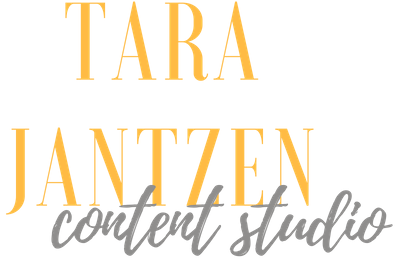You’ve worked hard to get your company name and services out there. Your subject matter experts are presenting at all the major events in your industry. Client success stories are beginning to emerge. And you’ve now begun to pique the interest of a few journalists.
Before you agree to that media interview, there are many things to consider ensuring it’s the right opportunity for your business.
The first thing to understand is that you don’t have to accept every interview request that comes through. If you pass on one that doesn’t fit well, another opportunity will come that is better suited. Just be patient.
While it’s great to get publicity, in certain circumstances, the nature of the interview may do more harm than good. It’s best to consider the opportunity from all angles to make certain the fit is not only right for your company and its brand, but also for the interested media outlet. You don’t want to waste their time with an awkward conversation or ill-fitted examples simply because it’s another piece of coverage to report to the C-suite. Be respectful of the journalist’s time and conduct the appropriate due diligence to confirm this is the right opportunity for all involved.
What’s the Opportunity?
Let’s break down the media opportunity to see if it’s right for your business. And remember, when a media outlet contacts you, you typically need to support the short deadlines of the journalist and may have very little time to assess the opportunity. You must become adept at answering the questions below and make your decision rather quickly. Be respectful of the journalist’s timeline and respond as promptly as you can. If you don’t, they will move on to your competitors instead.
Media Outlet – The first thing to understand in any new media opportunity is the profile of the publication or outlet requesting the interview. You want to be sure it’s appropriate for your business and that the visibility and reach are aligned with your target audience.
- What is the publication or media outlet and what do they cover?
- Is this an outlet on your preferred media list?
- What is the target audience for the publication and this article?
- What are the circulation, readership, and reach of the media outlet?
- How relevant is this outlet to your clients, prospects, and key decision makers?
- Do they read it, and does it carry clout with your audience?
Story Details – After assessing whether the outlet is right for your business, clearly understand the story angle to ensure there is a good fit. It is important not to force fit a story to an expert just for the sake of gaining visibility. This will backfire and may deter the journalist from returning to your company for future opportunities.
“Storytelling reveals meaning without committing the error of defining it.” –Hannah Arendt
- What is the focus of the article or the story angle so the most relevant person and information can be provided?
- In what area do they need an expert?
- Are they looking for someone to comment, provide information only, or dive deeper as an expert?
- Are they hoping to speak to your clients as well in the context of any examples shared?
- What context will the story appear?
- Are others being interviewed for the story?
- When and how will the interview take place — over the phone, in-person, radio interview, video interview?
- How long will the interview take?
- What is the deadline for conducting the interview?
- When will the story likely publish?
- Does the timing work for your business?
Journalist Background – It’s smart to fully research the journalist you are dealing with so you not only understand what and how they traditionally write their stories, but also to match the right expert to the reporter and their style. If you have a seasoned journalist, you likely want someone who is more experienced to handle the interview. If they are less experienced, it might be a good opportunity to introduce some new talent to your media activities. Just be sure they are trained, thoroughly understand the topic, and have strong information and messaging to provide solid content to the reporter. If the content is more complex, you may want to have them shadow a pro first so they can see how to package and share information in a clear and thoughtful way.
- Who is the reporter conducting the interview?
- What is his or her background?
- Are they a seasoned journalist, fairly new to the outlet, or are they a freelance reporter?
- How often do they publish stories in this outlet?
- What is their sphere of influence?
- What are the types of stories this journalist has published in the last year?
- Do they historically write more controversial stories, or informational as it relates to trends and hot topics?
- What level of executive do they typically interview?
How Does This Align With Your Business and Brand?
No matter what size your organization, assessing whether a media opportunity aligns to the brand and its business objectives is worth asking some hard questions. If your business doesn’t want to be seen as solely focused in one area, yet those are the only opportunities that arise, maybe it’s time to pass on the interview. Or if there are plans to launch something big within a subject area, but you hope to share expertise in a month rather than now, examine whether the timing is going to impact the business plans.
When reviewing a media opportunity, think strategically about your entire business as well as the long-term impacts, rather than a narrow, short-term, quick win.
Subject Area – Now that you know the outlet and the journalist conducting the interview, get a full grasp of the topic they want to cover and the context in how they want to write about it. It’s important so you can be certain your expert can speak to that context, and if they have a unique view or something innovative to share, they can be fully prepared. If the storyline doesn’t fit well with your business, is still too new to your company, or outside the range of experience of your spokesperson, the reporter will pick up on this right away and likely won’t publish your company’s insights. Don’t waste everyone’s time and risk damaging the trust and relationship with the journalist and the publication.
- Is the topic in your company’s sweet spot as it relates to services or offerings?
- Is the topic new to your business or is there some level of maturity in terms of experiences and skills?
- Is this an area you’re hoping to bring greater visibility?
- Is it a topic that has reached its limits in the market?
- Do you have a unique angle or a strong point of view to share?
- Do you have a story to tell?
- Would participating in this conversation compromise the brand, the expert, or a client in any way?
Spokesperson – Getting the right spokesperson to represent your brand in any interview is critical. You must showcase your best talent, position your organization as a relevant thought leader in the space, and set the stage for future opportunities as the go-to resource on this topic. It’s worth taking the time to do an inventory of experts and topics before any opportunities emerge. Once you have the list, you can continually work with these individuals to be certain they are staying on top of their subject areas, that they have key messaging ready to go, and that they have real-life examples to speak about.
“Death will be a great relief. No more interviews.” — Katherine Hepburn
- Do you have one or more subject matter experts who can speak extensively on the topic?
- Do they have a formulated view and strong messaging on the subject?
- Have they been media trained?
- If not, are they articulate on the subject and quick on their feet?
- Can they explain your business quickly and succinctly and put the subject in the context of your brand, the marketplace, competitors, and trends?
- Can they do this without coming across as too salesy or using too much marketing speak?
- Do they have more than one or two client examples to include?
- Are they client-approved references?
- Is this an expert you want to bring visibility to?
- Can your top expert be available for an interview?
There are likely more questions to explore in each area depending on your business, the industry, and where it’s at in the market, but these should be enough to get you thinking in the right direction. Talk to your executives, subject experts, and colleagues to gain their perspective. They may know something you don’t which could impact the value of this media opportunity.
In the second part of this series, we’ll be covering what’s essential in preparing the subject matter expert for the media interview. While most who are seasoned pros and media trained typically won’t need extensive preparation, there is still a level of framing and education that will need to occur.
If you’re more experienced at assessing media opportunities, what other considerations do you take into account? Are there core questions you leverage to determine the value of the opportunity? Share your experiences in the comments below.
Read Part 2 | The Media Interview: Preparing the Expert
Image Credit: ©iStock.com/Picsfive

